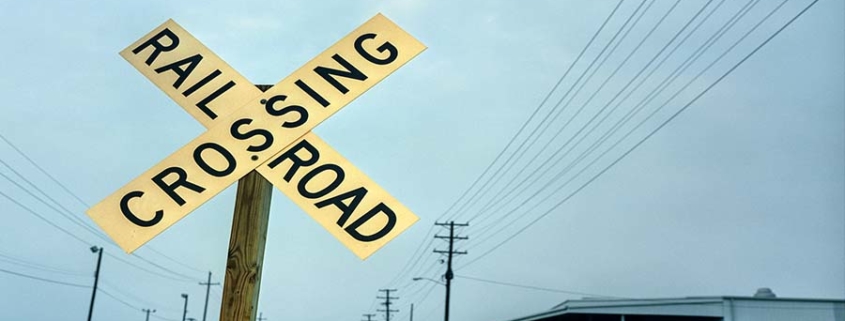How Common are Accidents at Railroad Crossings?
Alabama has seen its fair share of railroad crossing accidents in recent years. In February, a tractor-trailer collided with a train in Pelham. Thankfully, there were no injuries reported, but this was one of the few times when the semi-truck took the brunt of the damages from a collision. Last December, a railroad accident in Birmingham did not turn out as well. In that accident, an Amtrak train headed from New Orleans to New York crashed into a passenger vehicle on its tracks, killing the two occupants of the vehicle.
Railroad crossing accidents like these happen less frequently than other traffic events, but when they occur, the results can be catastrophic. It is not uncommon for train collisions to result in serious injuries and fatalities, and typically there is also extensive damage done to vehicles that are involved in the collision.
What Causes Accidents at Railroad Crossings?
According to the Federal Railroad Administration, there are over 2,100 railroad crossing accidents in the U.S. each year, which amounts to about five or six each day. And when a vehicle collides into a train, the chances of a fatality are 20 times greater than a collision with another vehicle.
Driver negligence is certainly a factor in some railroad crossing accidents. However, there are a number of other reasons these types of accidents can occur. Examples include:
- Warning signals not installed: A large number of railroad crossings in Alabama still do not have warning signals (such as crossing arms and flashing lights) installed to adequately alert drivers of an oncoming train. When there is no warning system, the chances of an accident are increased.
- Warning signal defects: Some railroad crossings have warning systems, but they are defective due to lack of maintenance, faulty products, or other issues. When a warning system malfunctions, drivers again may not receive adequate warning that a train is coming.
- Track defects: Damaged, broken or otherwise defective tracks can make it more difficult for cars to get through the crossing. Track defects also heighten the chances of a train derailment, which can endanger nearby vehicles, bikers, or pedestrians.
- Steep or uneven roadway: The road leading up to a railroad crossing should not be too steep for vehicles to get through safely. The gradient, or steepness of the road must be in compliance with federal regulations.
- Obstructed line of sight: Various impediments may block the view of drivers, preventing them from seeing an oncoming train. Examples may include overgrown trees and bushes and other vegetation that gets into the train’s line of sight.
- Train operator error: Sometimes, the negligence of the train operator could contribute to a railroad crossing accident. This may happen because of chemical impairment, distractions, excessive speeding, and other negligent or reckless actions.
- Defective train components/parts: Some train accidents can happen because of a mechanical failure or a train component or part that malfunctions. For example, if the train’s brakes fail, it may be unable to stop in time to avoid a collision with another vehicle, object, or person.
Who can be Held Responsible for an Accident at a Railroad Crossing?
As mentioned earlier, the driver of a vehicle that collides into a train is sometimes at-fault for a railroad crossing accident. Other times, however, another party may be liable. Potential parties that may be held responsible for a train accident include:
- The train operator;
- The railroad company;
- The train track owner;
- The designer or manufacturer of the train;
- The government entity responsible for maintaining the roadway up to the track.
Railroad accident cases in Alabama are highly complex and challenging to pursue. There are numerous laws and regulations that govern the industry, and a thorough investigation is needed to uncover the exact cause of the accident. Things are further complicated by Alabama’s “contributory negligence” legal standard. Under contributory negligence, an injured party can be barred from recovering any kind of compensation at all if they are found to be even 1% at-fault for the underlying accident that caused their injury.
There is no doubt that railroad companies and other large entities (along with their insurers) will attempt to use this defendant-friendly standard against you if you decide to pursue an injury claim. For this reason, it is important to get an experienced attorney involved in your case as early as possible, so you can preserve your legal right to recover damages.
Call the Seasoned Alabama Railroad Crossing Accident Lawyers at Burns, Cunningham & Mackey
Accidents at railroad crossings can result in severe injuries and fatalities. If you or a loved one has been injured or killed in a train accident, you need strong legal counsel in your corner advocating aggressively for your rights and interests. At Burns, Cunningham & Mackey, P.C., we have extensive experience representing individuals injured in railroad accidents, and we work closely with our clients to provide the skilled and personalized representation they need and deserve.
Call our Mobile office today at (800) 574-4332 for a free consultation. You may also send us a message through our online contact form.





Leave a Reply
Want to join the discussion?Feel free to contribute!